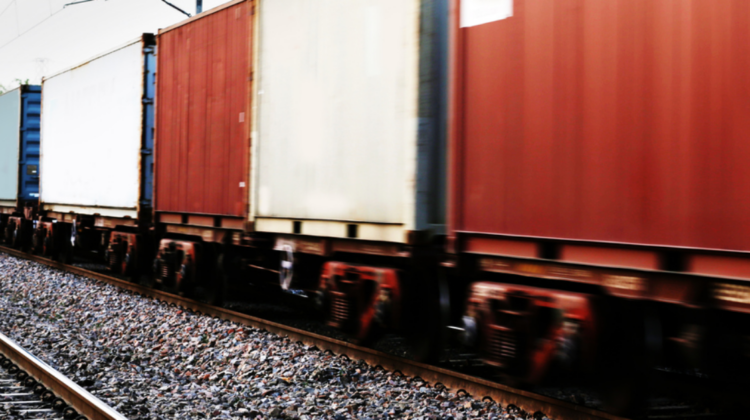
How rail freight is powering India’s express delivery future
NEW DELHI : India’s thriving economy relies heavily on its express delivery sector, which has long been dependent on road transport. Yet, the industry is undergoing a significant transformation, driven by the imperatives of efficiency, cost-effectiveness, and sustainability. The congestion and escalating costs of road transport have stymied sector growth, prompting a shift towards rail freight. Rail freight is now positioned to shape the future of India’s express delivery, with a spotlight on efficiency, nationwide connectivity, infrastructure enhancements, and the integral role of modernization and technological advancements.
Unlocking Growth Potential
With strategic initiatives like the New Logistics Policy and PM Gati Shakti, enhancing multimodal connectivity infrastructure, rail freight is poised to transform the express delivery industry, offering a sustainable alternative to road transport. This shift aims to catapult freight traffic from 1.1 billion tonnes in 2017 to 3.3 billion tonnes by 2030. Indian railways’ remarkable 7.5% increase in cargo transported in 2022, totalling 1,497 million tonnes, aligns with the National Rail Plan Vision-2030’s goal to raise rail’s freight share from 31% to 44% by 2051.
Leading the charge, TCI Express, with its rapidly expanding Rail Express vertical, has bolstered its customer base from 250 to 2,200, extended its network from 10 routes to 125, and efficiently ensured optimal capacity utilisation, thereby boosting industry growth and efficiency.
Improved Speed and Efficiency
India’s rail freight sector undergoes a transformative shift, prioritising speed and efficiency with the crucial role of Dedicated Freight Corridors (DFCs). The ambitious plan targets a 50 kmph average train speed, slashing costs by 30%. The introduction of super freight trains like the 3.5 km Super Vasuki significantly bolstered rail freight efficiency, leading to an 83.5% surge in goods train speed to 43.2 kmph between FY20 and FY21.
With improved railway infrastructure, TCI Express offers comprehensive rail freight solutions, including door-to-door and station-to-station delivery, multi-modal services, break bulk, and full rake movement, ensuring efficient bulk shipment handling and faster turnarounds.
Cost-Effectiveness
In India, road transportation dominates the freight industry, with 66% of cargo in ton-km, while rail freight makes up 31%. The volatile fuel prices associated with road transport drive up costs. Railways, on the other hand, offer a more cost-effective mode of transportation. With improved connectivity, express delivery firms can pivot towards long-haul rail transport, effectively reducing expenses and expediting parcel deliveries.
TCI Express prioritises railway delivery for cost-effective express services, optimising economies of scale at its branches and along routes to provide efficient logistics solutions to its customers.
Robust Connectivity
India’s expanding rail freight network provides extensive nationwide connectivity, poised to revolutionise express delivery services. Initiatives like DFCs, industrial corridors, multi-modal parks, cargo terminals, and the Kisan Rail will be the bedrock of efficient cargo transport, meeting surging demands, catalysing industrial growth, and ensuring rapid and effective goods transportation.
Lavering rail freight’s potential, TCI Express provides express delivery across 125+ routes, connecting 50,000 pickup and 60,000 delivery locations in 29,000 pin codes with a fleet of 5,000 containerized vehicles, enabling tailored solutions such as multi-location pickups and single-point deliveries.
Infrastructural Reforms
Infrastructure reforms, comprising DFCs, industrial corridors, Golden Quadrilateral routes, cargo terminals, multi-modal parks, 100% electrification, multi-tracking on congested routes, and speed enhancements, are set to redefine rail freight. DFCs target a significant portion of exim containers and commodities, removing the traffic from highways, enabling faster transportation, and reducing O&M and transportation costs.
TCI Express utilises railway infrastructure with its widespread network of 950+ branches and 28 hubs, strengthened by India’s first fully-automated GIGA Sorting Centre in Gurugram, while gearing up for a substantial Rs 500 crore investment to strengthen our physical infrastructure in rail freight in the coming years.
Digital & Technological Advancements
Technological progress in rail freight involves the integration of GPS for real-time wagon tracking alongside RFID tags. As part of the ULIP programme, it promotes digitalization through electronic wagon demand registration (e-RD), paperless Railway Receipt transactions via eT-RR, streamlined receipt preparation with TMS, and electronic payment systems, enhancing transaction efficiency and transparency, especially for substantial payments.
Staying aligned with current trends, TCI Express embraces digital solutions to enhance customer experiences and operational efficiency in railway bookings, implementing paperless processes like e-invoicing, Auto-MIS, e-DWBs, e-PODs, RFID, and GPS tracking.

